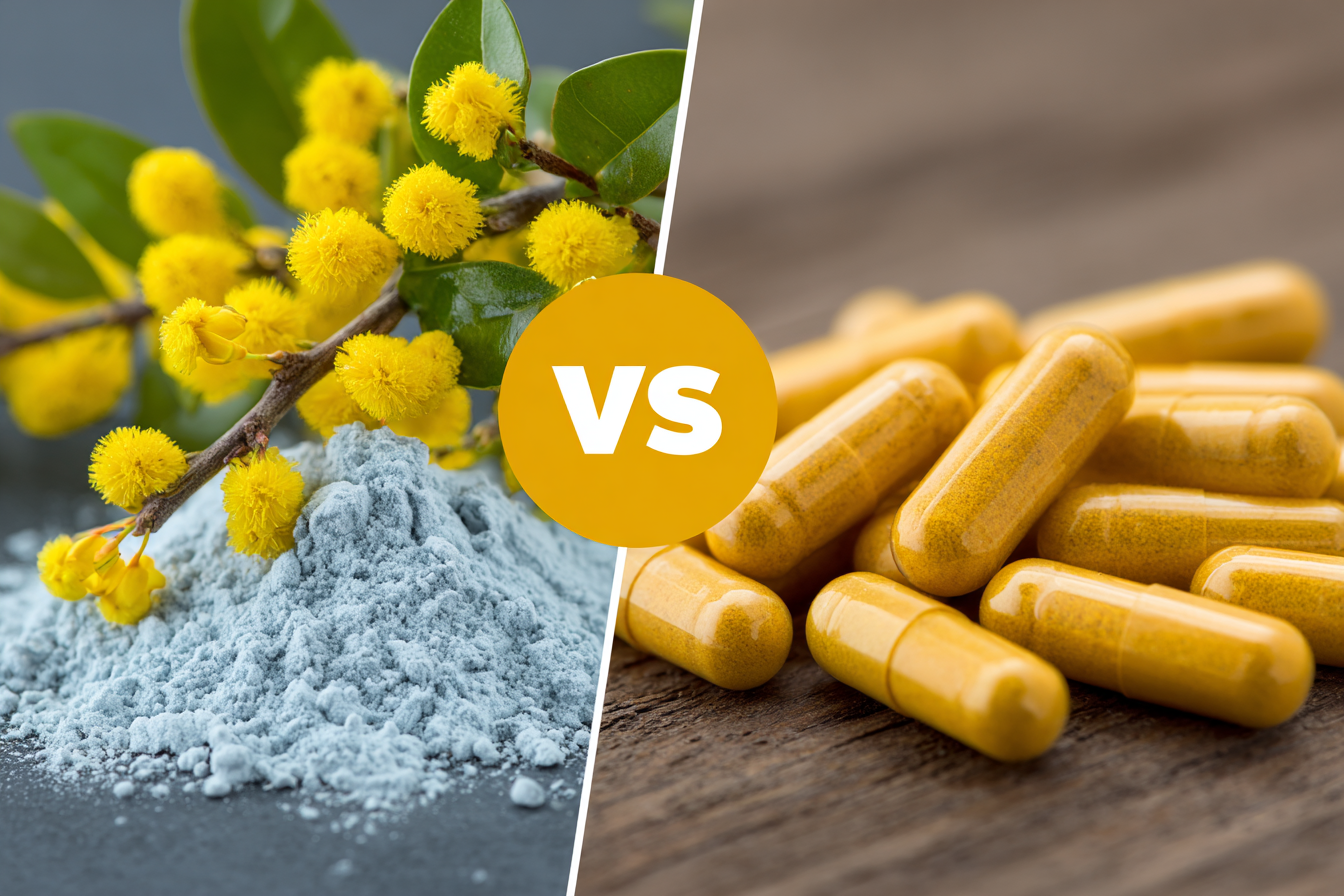Berberine vs. Metformin: Natural Alternative or Hype?

In the fitness and biohacking world, metabolic health is the foundation for everything from fat loss and energy levels to longevity.
Metformin has long been the go-to pharmaceutical for managing blood sugar and improving insulin sensitivity.
But lately, a natural compound called berberine has been making waves in the supplement world, with claims that it works just as well, without the prescription.
So, is berberine the real deal or just another hyped-up herb? Let's break it down like a pro.
What Is Metformin?

Metformin is a prescription drug that has been around since the 1950s. It’s primarily used to manage type 2 diabetes, but it’s also prescribed off-label for things like polycystic ovarian syndrome (PCOS) and even in longevity research circles.
It works by reducing glucose production in the liver and improving how the body uses insulin. It also seems to influence the gut microbiome in ways that benefit metabolism.
According to PubMed Central, metformin’s effects have been studied in depth across numerous clinical trials.
In short, it’s a heavy hitter with decades of research behind it.
What Is Berberine?
Berberine is a natural plant compound found in herbs like barberry, goldenseal, and Oregon grape. It’s been used in Chinese and Ayurvedic medicine for centuries, mainly for its antimicrobial and anti-inflammatory effects.

More recently, it’s gained popularity among fitness enthusiasts and health-conscious individuals for its potential to regulate blood sugar and improve lipid profiles.
It’s being called "nature’s metformin" for a reason, but is that title deserved?
How Do They Work?
Interestingly, both metformin and berberine activate AMPK (adenosine monophosphate-activated protein kinase), often referred to as the body’s metabolic master switch. This enzyme plays a key role in energy balance, fat metabolism, and glucose uptake.

Metformin reduces glucose production in the liver, improves insulin sensitivity, and affects mitochondrial function. Berberine appears to do much of the same, activating AMPK, improving insulin signaling, and even positively influencing the gut microbiome. On paper, their mechanisms are surprisingly similar. According to Examine.com, berberine’s mode of action aligns closely with that of metformin.
What Does the Research Say?
Several small-scale studies and meta-analyses have shown that berberine can be just as effective as metformin in lowering blood sugar and HbA1c levels in people with type 2 diabetes. One systematic review even showed that berberine matched metformin in glucose-lowering power over a three-month period.
However, there’s a catch: the research on berberine isn’t as deep or as standardized. Metformin has decades of clinical data, FDA oversight, and long-term safety records. Berberine, being a supplement, doesn't go through the same rigorous testing. Most studies are small, short-term, and lack consistency in dosing and formulation.
Side Effects and Safety
Metformin is generally safe but can cause gastrointestinal issues in some people, like bloating and diarrhea. There’s also a rare risk of lactic acidosis, especially in those with kidney issues.
Berberine is also considered safe for most people but can cause similar GI symptoms. It may also interact with certain medications like blood thinners or antibiotics. And because it hasn’t been studied long-term the way metformin has, we don’t have a full picture of its safety over the years. The National Institutes of Health recommends consulting a healthcare provider before starting berberine, especially if you're on medication.
Who Should Consider Berberine?
If you're someone dealing with insulin resistance, prediabetes, or just trying to stay lean and metabolically sharp, berberine might be worth looking into, especially if you want a natural option and don’t have access to prescription drugs like metformin.
It could also be a solid alternative for those who experience side effects from metformin. That said, you should absolutely talk to your healthcare provider before making any swaps or stacking it with other meds.
Final Verdict: Alternative or Hype?
Berberine shows real promise. For fitness-minded individuals looking for a natural way to support blood sugar, fat metabolism, and even gut health, it’s more than just hype. But it’s not a one-to-one replacement for metformin, especially for those with diagnosed metabolic conditions.
If you're healthy and looking for a metabolic edge, berberine could be a legit tool in your stack. But if you’re managing a medical condition, metformin still holds the gold standard. Use science, not trends, to guide your choices, and always loop in a medical pro before making the switch.

















